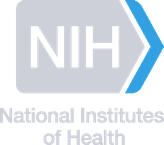
Exciting New Research From the BEAT-AFib Study
PAC a Punch for AFib Prevention
Dr. Edward Gerstenfeld, Professor of Medicine and Chief of Electrophysiology at UCSF, and his team are looking into the treatment of premature atrial contractions (PACs), extra beats from the top chambers of the heart, that have been shown to predict future atrial fibrillation (AFib). The hypothesis is that these PACs may contribute to the electrical and structural changes in the heart that contribute to the development of AFib and that early detection and treatment of the PACs could help prevent the development of AFib in many patients. The study has been funded by a 5 year R01 grant from the National Institute of Health (NIH). Patients with frequent PACs who have not yet developed AF are encouraged to enroll in this 5 year longitudinal study.
AFib Research from UCSF and Beyond
CRAVE-ing Caffeine?
Dr. Gregory Marcus, Professor of Medicine and Associate Chief of Cardiology Research at UCSF, and Dr. Jeffrey Olgin, Professor of Medicine and Chief of Cardiology at UCSF, and their team assessed caffeinated coffee consumption effects on two types of heart arrhythmias in 100 participants taking part in the CRAVE study. The two arrhythmias the team focused on were premature ventricular contractions (PVCs) and premature atrial contractions (PACs). Within the last decade, studies have found that an increased amount of PVCs leads to an increased risk of heart failure and an increased amount of PACs have aided in predicting new onset atrial fibrillation. Read more about Dr. Marcus’s and Dr. Olgin’s work here.




